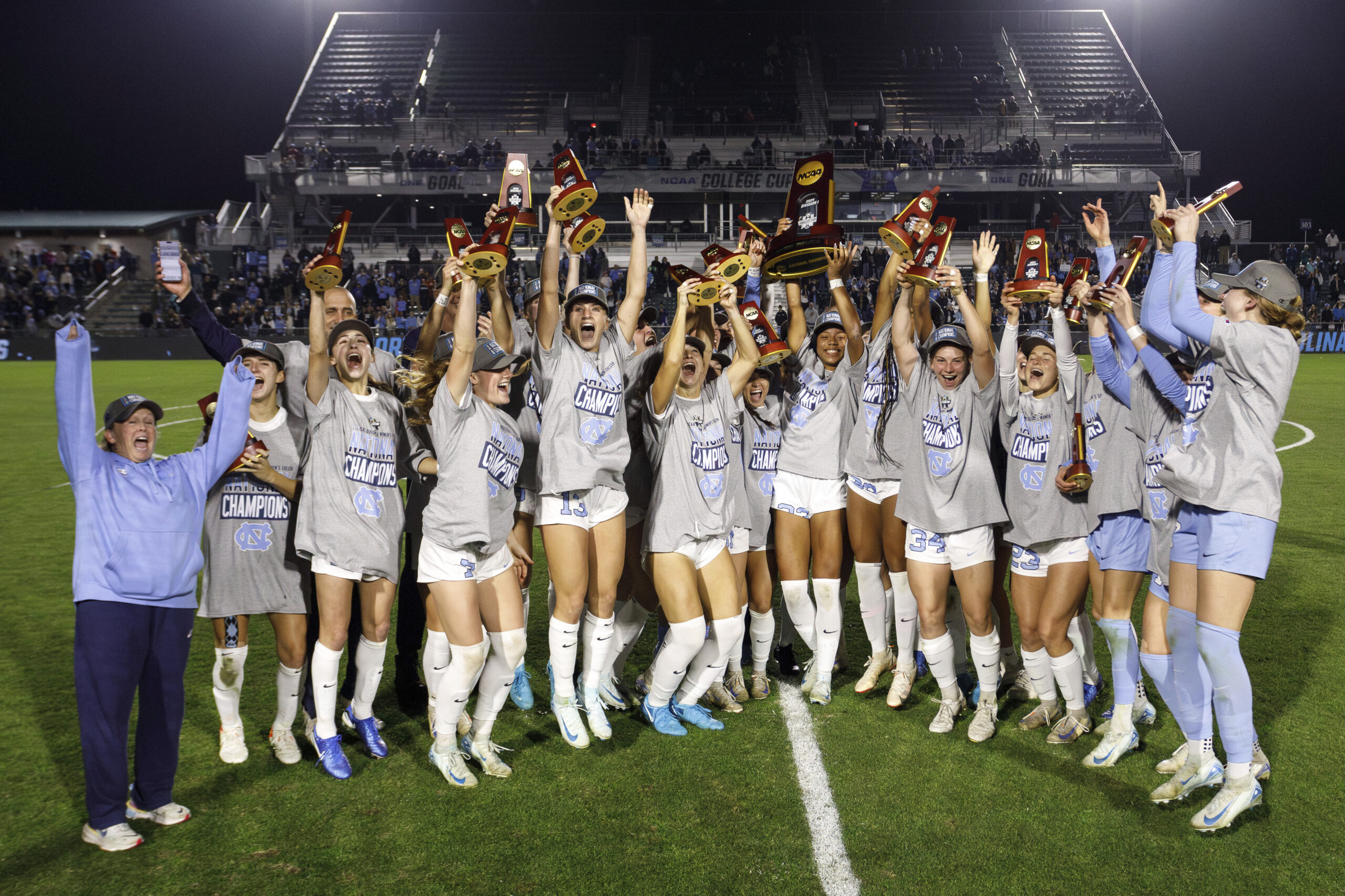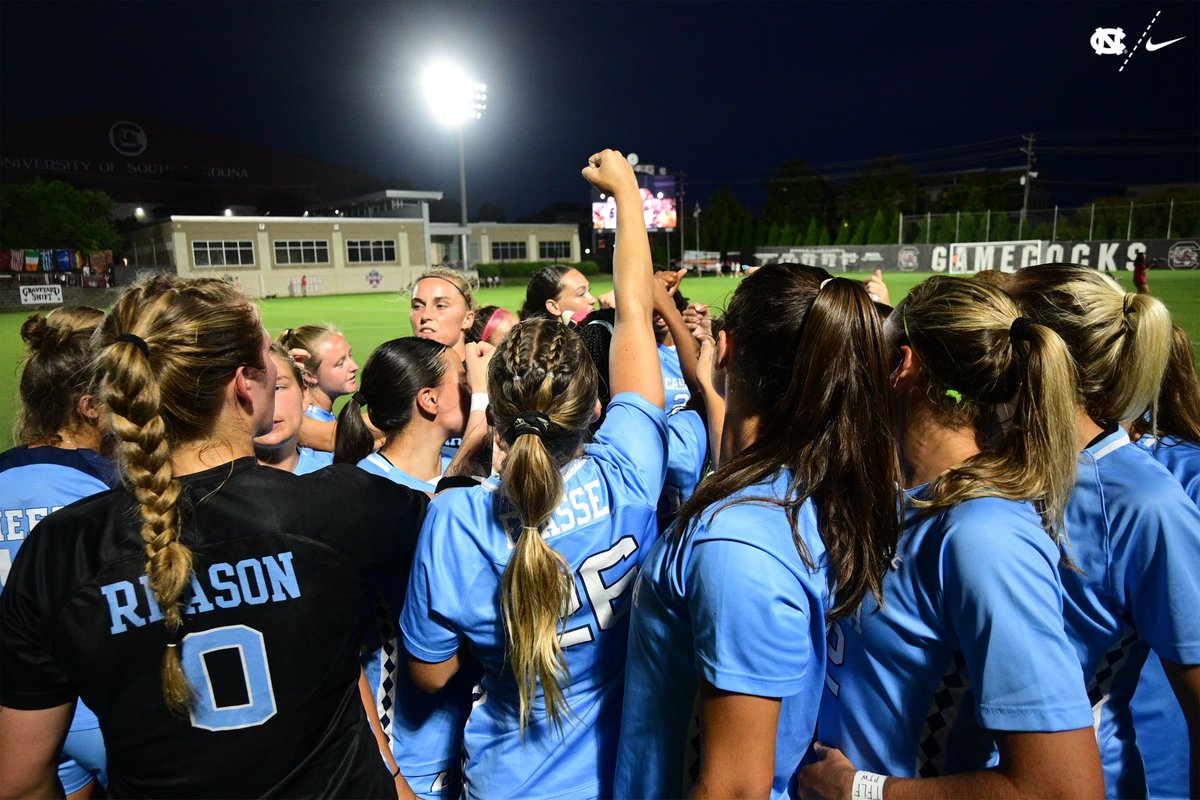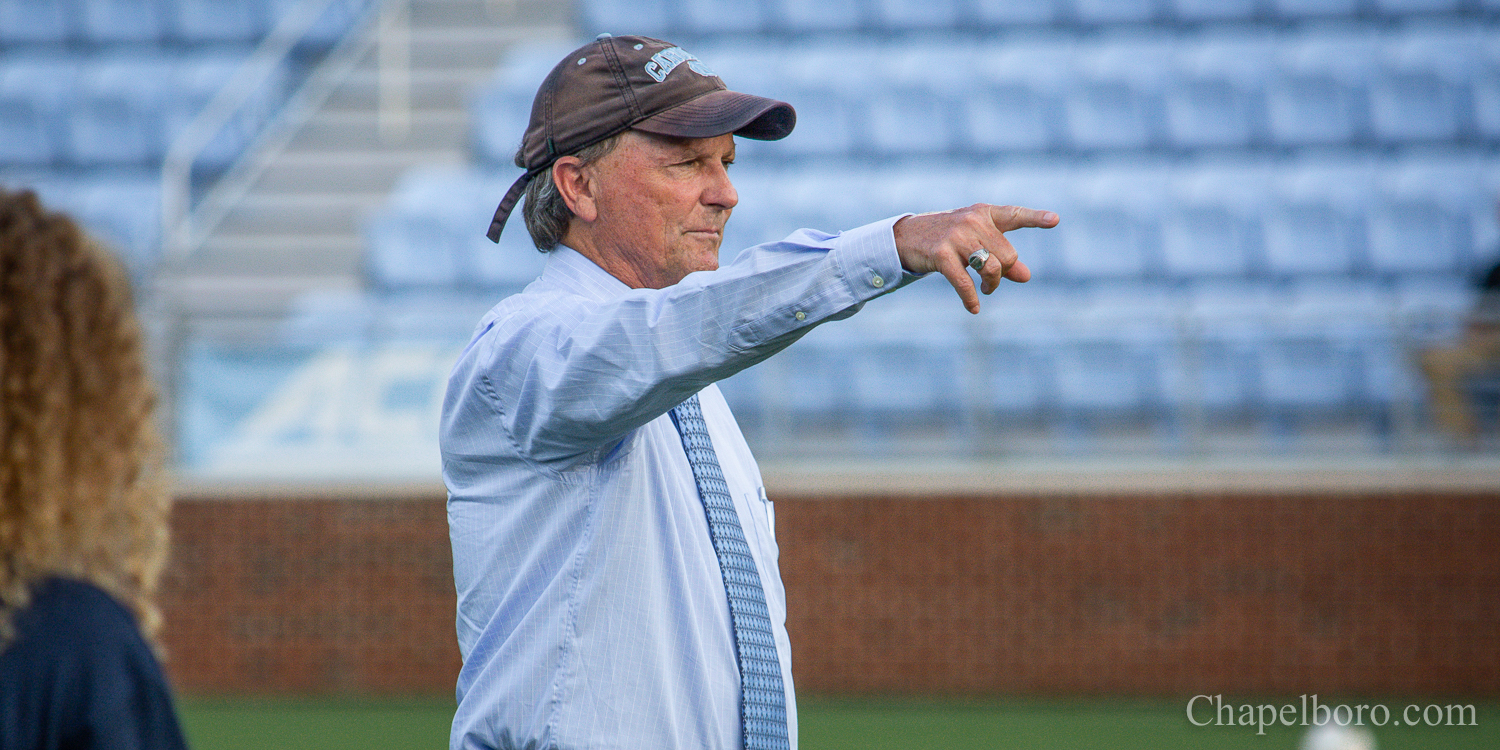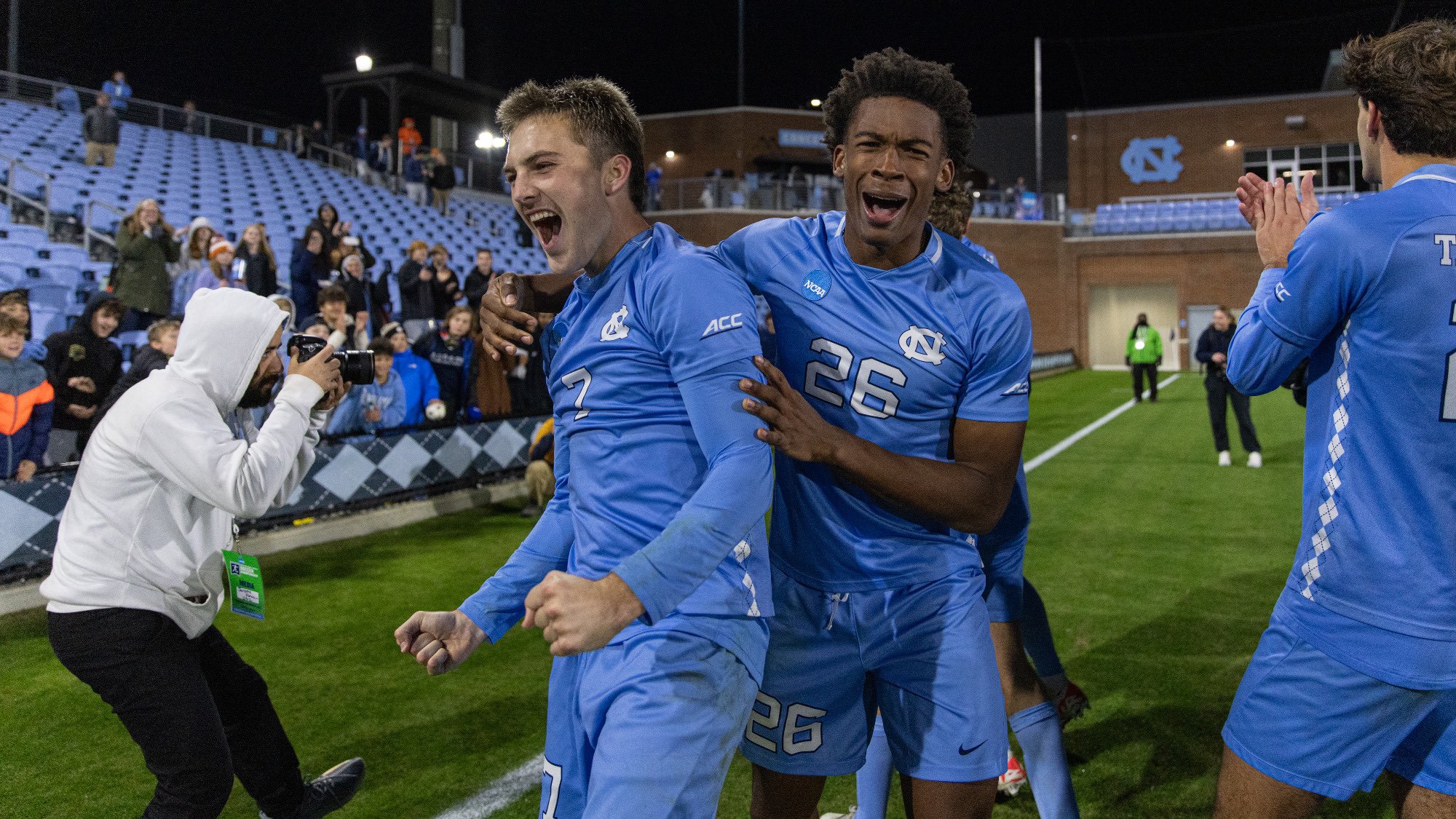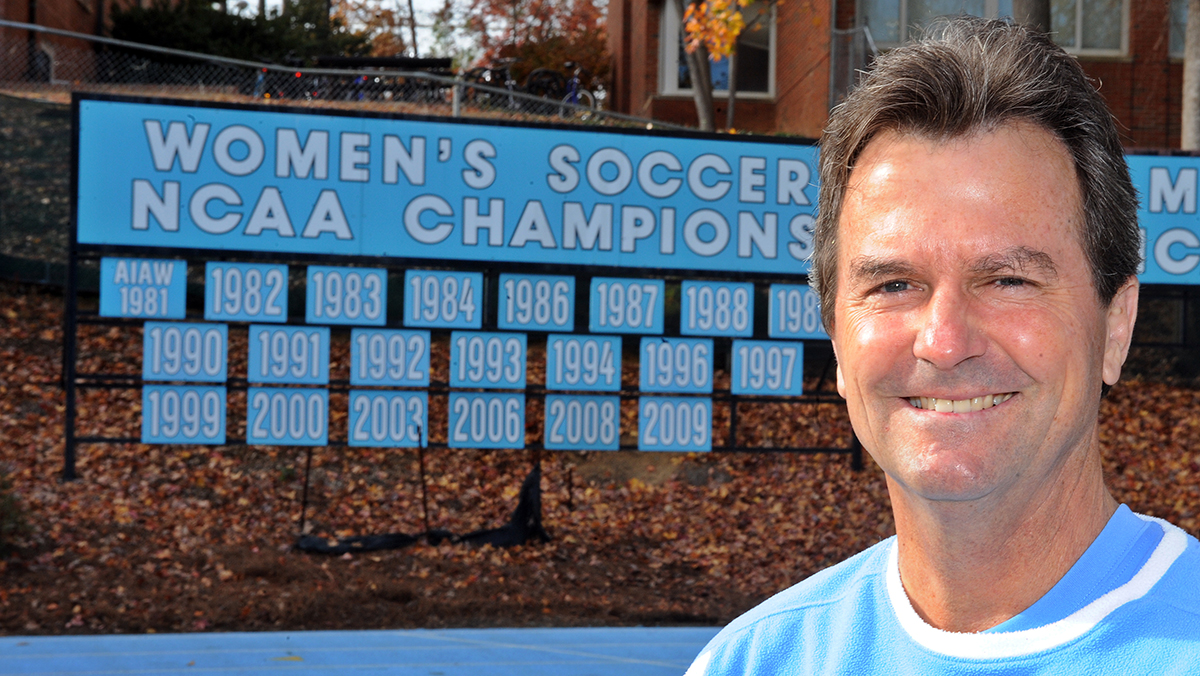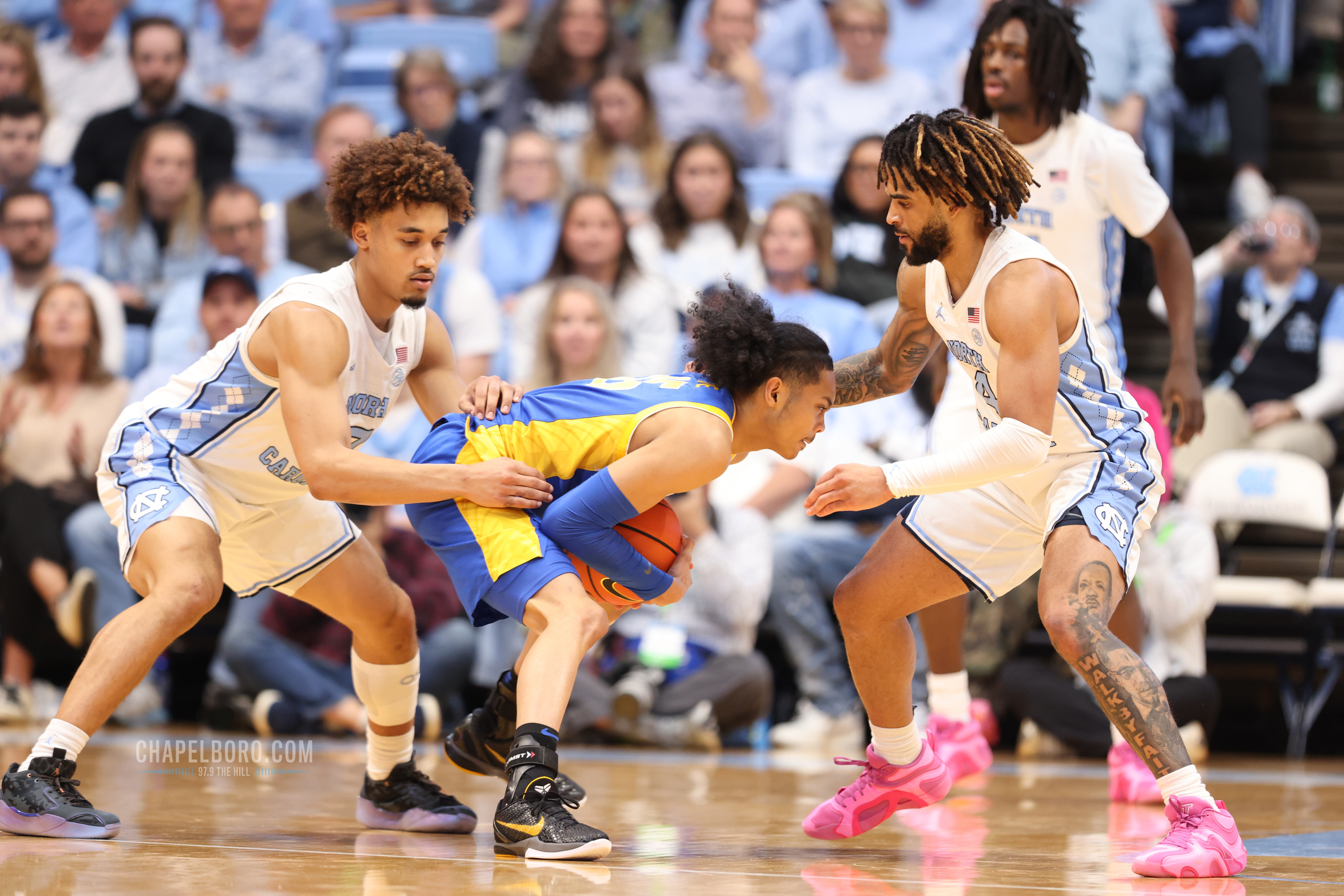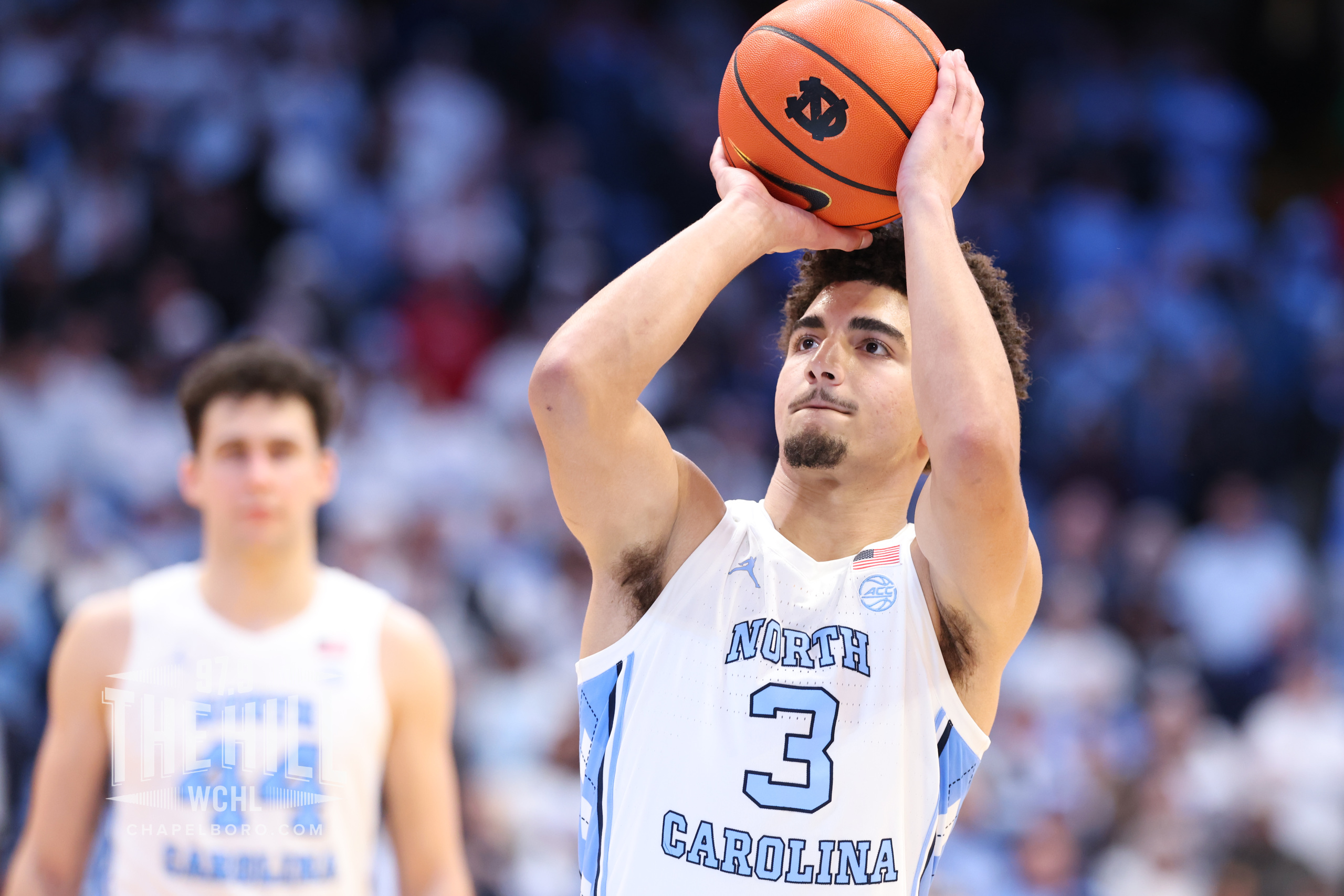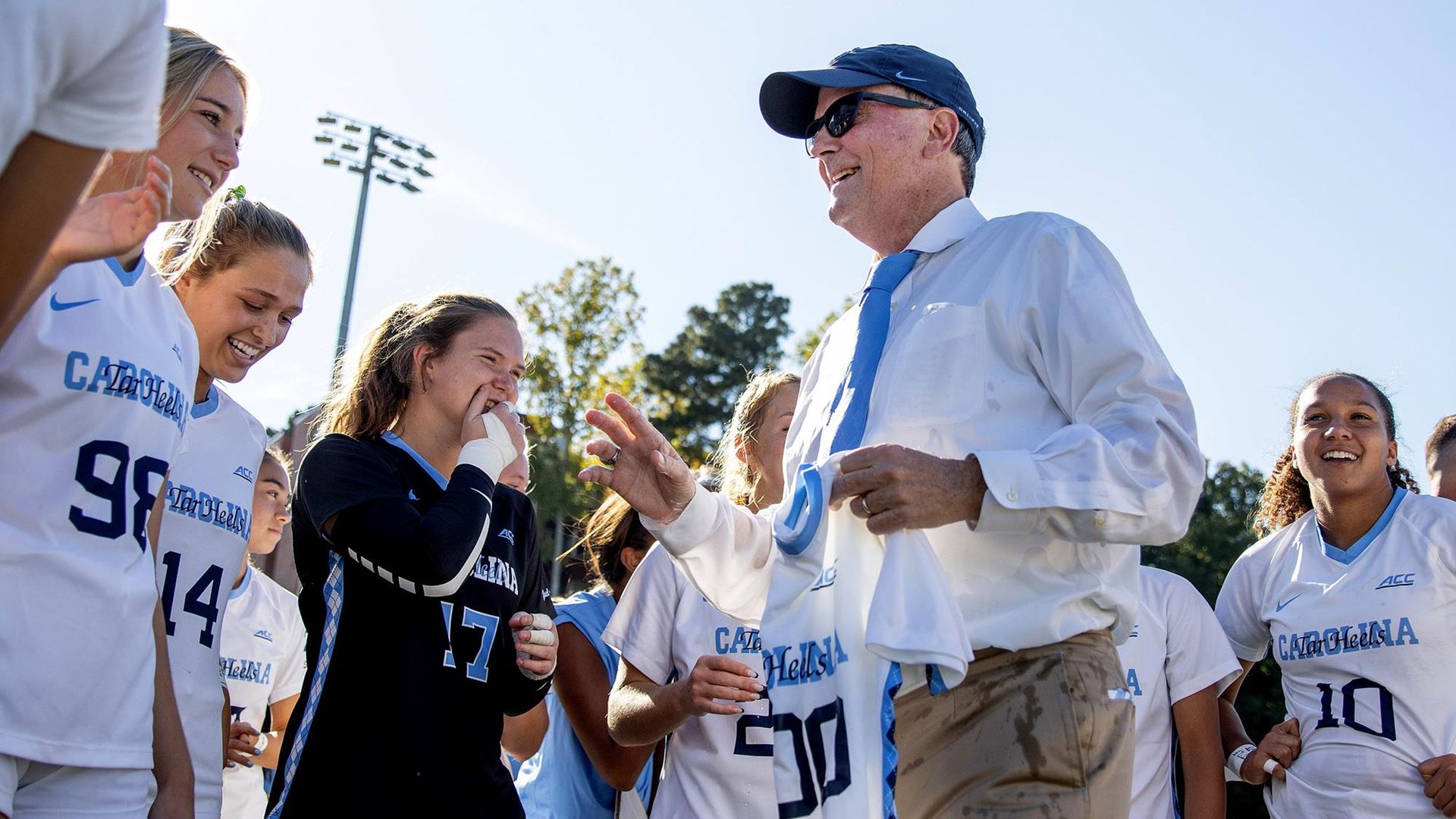
Art Chansky’s Sports Notebook is presented by The Casual Pint. YOUR place for delicious pub food paired with local beer. Choose among 35 rotating taps and 200+ beers in the cooler.
Anson Dorrance is going out like his original mentor.
Among the many famous stories about Anson Dorrance is how he wangled his way into a Carolina basketball practice to watch Dean Smith “teach a class.” That was in 1982, while Dorrance was still coaching the UNC men’s and fledgling women’s soccer teams.
He had heard that Smith’s practices were scheduled by the minute: 5:00 pm dribbling warm-up, 5:03 stretching, 5:07 layup drill. “How is this possible?” Dorrance said in Tim Crothers’ best-selling 2009 book “The Man Watching” about the soccer Hall of Famer who announced his sudden retirement Sunday when even Dorrance predicted he would die on the pitch one day.
To attend one of those practices, Dorrance needed almost top-secret clearance beginning with assistant coach Bill Guthridge, who laid down the rules about how and when to enter Carmichael Auditorium. Pick up a pass, meet a manager in the concourse, sit above the yellow railings, “no food, no drinks, no talking,” Dorrance recalled.
Smith became the secret mentor Dorrance was looking for, and the Carolina soccer program won so much that Smith himself used to quip, “We’re not a basketball school, we’re a women’s soccer school.”
Through the years, the famed coaches talked often about everything. Dorrance asked him what he was most proud of after he left the bench. “I retired coaching,” Smith said.
Dorrance did the same thing, at 73 years old (compared to Smith’s 66) after 47 seasons (to Smith’s 36) with 22 national championships and a World Cup (to Smith’s two, plus one NIT title and a gold medal) with legendary players from both programs.
He said that decision had a lot to do with Smith, who always said he would never retire after the last season but before the NEXT, when he knew he could no longer generate the enthusiasm to give his team 100 percent of his time, his mind and his energy.
So when Dorrance stepped down four days before his first game of the new season, a lot of Tar Heel old-timers remembered that’s what Smith said on October 9, 1997 (5 weeks before his team’s first game).
There could be other reasons that we will learn over time. But Dorrance may have started to seriously think about it the day the old Fetzer Field, renovated and expanded through his success, was named for him (like the arena name Smith agreed to reluctantly).
Dorrance coached dozens of all-conference and all-Americans and had more than 60 players compete in the Olympic Games, where they earned 29 gold medals and many of them also making the World Cup teams and advancing into pro soccer, the talent pool emanating from Dorrance’s early teams that set the national standard over five decades eclipsing what Smith did in four.
By the way, Dorrance won his first NCAA championship in the fall of 1982, a few months after attending that master class in Carolina basketball.
Featured image via UNC Athletic Communications
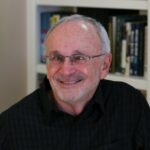 Art Chansky is a veteran journalist who has written ten books, including best-sellers “Game Changers,” “Blue Bloods,” and “The Dean’s List.” He has contributed to WCHL for decades, having made his first appearance as a student in 1971. His “Sports Notebook” commentary airs daily on the 97.9 The Hill WCHL and his “Art’s Angle” opinion column runs weekly on Chapelboro.
Art Chansky is a veteran journalist who has written ten books, including best-sellers “Game Changers,” “Blue Bloods,” and “The Dean’s List.” He has contributed to WCHL for decades, having made his first appearance as a student in 1971. His “Sports Notebook” commentary airs daily on the 97.9 The Hill WCHL and his “Art’s Angle” opinion column runs weekly on Chapelboro.Chapelboro.com does not charge subscription fees, and you can directly support our efforts in local journalism here. Want more of what you see on Chapelboro? Let us bring free local news and community information to you by signing up for our newsletter.



